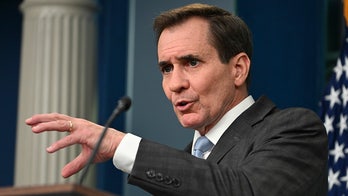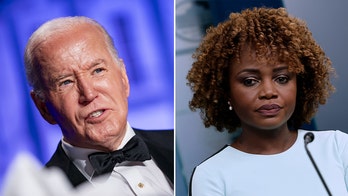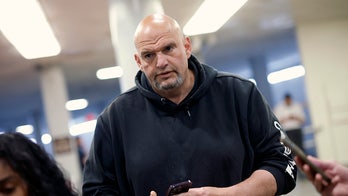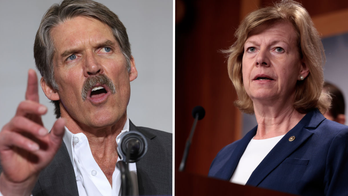Fox News Flash top headlines for October 30
Fox News Flash top headlines are here. Check out what's clicking on Foxnews.com.
- Brandon Presley, the Democratic Public Service Commissioner for Mississippi's Northern District, is banking on unprecedented turnout from diverse coalitions to help him unseat Republican Gov. Tate Reeves.
- Presley's underdog campaign has included stops in all 82 of Mississippi's counties, and boasts endorsements from some of the country's top political brass.
- Reeves assumed the Magnolia State's governorship after defeating then-state Attorney General Jim Hood by just over five percent in 2019.
At a hotel overlooking the Mississippi River in Natchez, Democratic gubernatorial nominee Brandon Presley told a few dozen Black and white supporters that Mississippi's Republican governor, Tate Reeves, is trying to hold onto money and power by sowing racial division.
"They’re sitting up in that governor’s mansion tonight, I bet you money, tinkling their little glasses, smoking their cigars," Presley said, imitating someone holding a tumbler of whiskey. "And they’re talking about how, ‘Well, nobody’s going to come vote.’ And particularly Black Mississippians. They don’t think you’re going to commit."
That brought murmurs from the crowd. One man called out: "We're going to be there."
DEMOCRATIC CHALLENGER OUTPACES GOP INCUMBENT IN FUNDRAISING FOR MISSISSIPPI GOVERNOR'S RACE
Presley, the 46-year-old second cousin of rock 'n' roll legend Elvis Presley, will need a bipartisan, multiracial coalition to vote in unprecedented numbers to accomplish his goal of unseating Reeves. The state hasn't wavered as a conservative stronghold in the modern era, and its last Democratic governor was denied a second term 20 years ago.
A former mayor of tiny Nettleton, Presley is wrapping up his fourth term as a state utility regulator for northern Mississippi. Seeking to pull off the improbable in the governor's race, he has campaigned in all 82 counties — from vote-rich areas in metro Jackson to rural Issaquena County, where fewer than 1,300 people live among cotton and soybean fields in a landmass the size of Los Angeles.
Presley is endorsed by the state’s most powerful Black politician, U.S. Rep. Bennie Thompson. One of the most famous Black Mississippi residents, Oscar-winning actor Morgan Freeman, recently joined him at a campaign event.
Presley has raised more campaign cash than Reeves this year, and he's attracting larger and more diverse crowds than any Democrat running for Mississippi governor in a generation.
Theresa Hall, a church administrative assistant, attended Presley’s campaign gathering in Natchez and said she plans to make phone calls for him.
"A lot of people think their votes don’t count. But they do," said Hall, who is Black. "It’s important. If we don’t (vote), we’ll be like we were four years ago, which was disheartening to see."
Reeves, 49, is seeking a second term as governor after two terms as lieutenant governor and two as state treasurer. During a multi-day trek to fish fries, festivals and businesses in several counties, Reeves spoke to an all-white crowd of about 40 people at a morning gathering at Kountry Kitchen in Columbus, near the Alabama state line.
Republican state Sen. Chuck Younger introduced the governor and warned against voting for Democrats.
"It’s been an honor working with Tate," Younger said. "If we were to go any other way, it’d be like the old Bruce Springsteen song — one step forward and two steps back. But it wouldn’t be two steps. It’d be about five steps back."
Reeves said Mississippi has momentum, with a low unemployment rate and improvements in public education.
"Liberal policies don’t work," Reeves said. "Conservative policies do work."
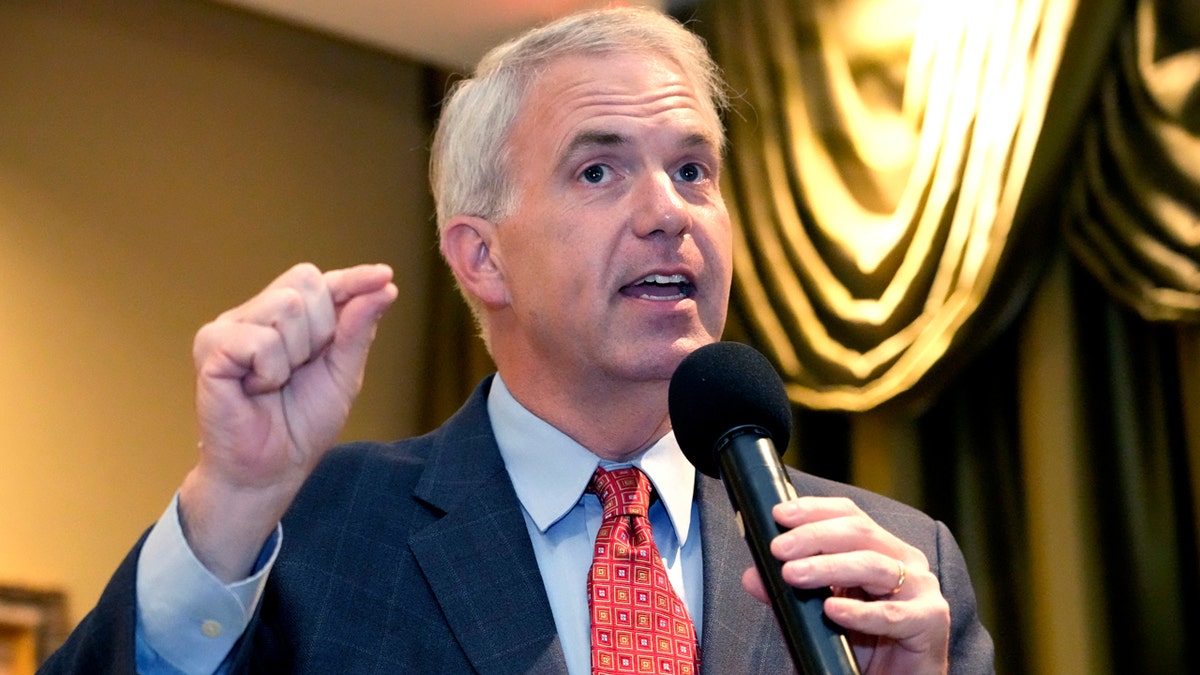
Brandon Presley, the Democratic nominee for Mississippi's governorship and its Public Service Commissioner for the Northern District, addresses supporters in Natchez, Mississippi, Oct. 19, 2023. (AP Photo/Rogelio V. Solis)
Presley is pushing for robust turnout among Black voters, who comprise nearly 40% of the state’s population and are the base of the state Democratic Party. He also needs crossover votes from people who usually support Republicans but are disenchanted with conditions in one of the poorest states in the U.S.
Others are making independent efforts to increase turnout. The Rev. William Barber, national head of the Poor People's Campaign, recently spoke at churches in coastal Gulfport and Biloxi, encouraging people of all races to support candidates who talk about improving lives of low-wealth residents.
"This election, any election, ought to be about what policies are needed to lift from the bottom," Barber said.
In speeches and TV ads, Presley talks about being in third grade when his father was murdered and then being raised by a single mom who worked in a garment factory and struggled to pay bills.
Presley says rural hospitals are hurting because of Reeves' refusal to expand Medicaid to people working jobs with no health insurance — roofing houses or waiting tables at the Waffle House. Reeves calls Medicaid "welfare" and says he does not want more people on government-funded health insurance.
There's evidence Presley is connecting with white working-class voters.
"Some people I know that are Trump supporters — they have Trump flags flying and a Brandon Presley sign in their yard," said state Rep. Nick Bain, who lost a Republican primary this year in northeastern Mississippi.
Black voting rights were hard-won in Mississippi, where leaders including Medgar Evers and Vernon Dahmer were killed in the 1960s trying to secure ballot access, which for decades was routinely — and often violently — denied to Black people. An integrated delegation from the Mississippi Freedom Democratic Party, including Fannie Lou Hamer, challenged the seating of an all-white state delegation to the Democratic National Convention in Atlantic City in 1964, drawing attention that helped push the federal Voting Rights Act into law in 1965.
As Black voter registration increased, Black candidates won a significant number of local and legislative offices. No Black candidate has won a statewide election in Mississippi, and it's gotten harder for white Democrats to win.
Reeves won the four-person governor’s race in 2019 with 52% of the vote to 47% for Democrat Jim Hood, a four-term state attorney general. Reeves links Presley at every opportunity to Democratic President Joe Biden, who is deeply unpopular in Mississippi.
In a November 2018 special election for the U.S. Senate, Democrat Mike Espy tried to build the sort of coalition Presley's working on now. Espy is a former congressman and was U.S. agriculture secretary. He received 46% of the vote to Republican Sen. Cindy Hyde-Smith's 54%. Hyde-Smith had been appointed to temporarily fill the seat several months earlier, after longtime Republican Sen. Thad Cochran retired. In a 2020 rematch for a full Senate term, Hyde-Smith defeated Espy by a similar margin.
One source of optimism in the Presley camp is a change in how Mississippi elects its governor. Until this year, winning a governor’s race required overcoming a unique legal challenge that was written into the state constitution during the Jim Crow era and repealed by Mississippi voters in 2020.
Under the old method, a gubernatorial candidate had to win a majority of the statewide popular vote and prevail in a majority of the 122 state House districts. Without both, the race would be decided by the Mississippi House.
That process was written in 1890, when white politicians across the South were enacting laws to erase Black political power gained during Reconstruction. The separate House vote allowed the white ruling class to have the final say in who holds office, and it fueled lingering cynicism among Black Mississippians about whether their votes would ever matter.
Mississippi was the only state in the U.S. with this process for electing statewide officials, and the vote to repeal the provision came only after former U.S. Attorney General Eric Holder sued the state on behalf of some Black residents.
Winning a governor’s race now requires a majority of the popular vote. If nobody receives that Nov. 7, the race goes to a Nov. 28 runoff. Although an independent candidate, Gwendolyn Gray, recently announced she is dropping out and endorsing Presley, she did so after the ballot had been set.
Presley says the new method of electing a governor gives him a better chance than the old one. He doesn't have to strategize to win a majority of House districts mostly drawn to favor Republicans.
CLICK HERE TO GET THE FOX NEWS APP
"For the first time, candidates of all political parties can truthfully emphasize voter turnout, where before it had to be such a scattered approach," Presley said last week at Tougaloo College, an historically Black school in Jackson. "This will be the first time particularly that Black voters’ votes will count to an extent of 100%, where before, an argument could be made that they were very much diluted."


